How to Declutter Your Kitchen For Wellness and Wealth

First things first! Why should you take time and energy to declutter your kitchen, anyway? There are three primary reasons that professional home organizers recommend you declutter your kitchen regularly:
- The first is to make sure that you live and work in a healthy kitchen.
- The second is to create a kitchen that you enjoy working in and that supports a joyful food preparation experience.
- The third is to encourage the flow of energy in your kitchen.
Let’s talk about energy first! In feng shui, the kitchen is considered to be the heart of the home. It is the part of the home that supports, nourishes and sustains life. In Top 9 Feng Shui Kitchen Tips, feng shui consultant Rodika Tchi writes,
“Feng shui-wise, it is the most important part of your home. The kitchen is also a feng shui symbol of wealth and prosperity. So naturally, you want to create good feng shui in your kitchen.”
Wealth and prosperity sound good to me!
Broken things of any variety are considered to be very bad energy in feng shui and the kitchen is no exception. Think about it: when you walk by a broken object, how does it make you feel? Guilty that you haven’t gotten it fixed yet? Author and feng shui educator Anjie Cho advises,
“Since broken objects indicate stagnant energy, they can wear you down on a subconscious level. Every time you see that item you have been meaning to repair, it weighs on you. It’s time to either get it fixed or let it go!”
Do you have broken appliances in your kitchen? Time to declutter your kitchen to free up some space along with that stagnant energy.
Of course, you want to be mindful of food safety for yourself and others in your household. Here we offer guidance regarding frozen food storage, spice longevity and how long to keep staples in your pantry.
- Old spices. According to Still Tasty.com spices begin to lose their flavor between 2-4 years. Ground spices do not keep as long as whole ones and where and how you store your herbs and spices will also affect their potency. Pro Tip: Do not store spices over your stove or in other spots with high temperatures.
- Pantry goods: Though some pantry goods can remain stable for years, there is no reason to keep pantry items that you will never use or that were acquired during a different stage of life. Keeping sugary children’s cereals after your teen has decided to avoid carbs or you have been diagnosed with prediabetes is not a wise use of pantry space. One area in which you will want to be cautious includes oils and nuts, which can easily become rancid. Why does this matter? In a word, oxidation! Melissa Karch, in an article titled “Health Effects of Rancid Fat in Your Diet” cautions “Oxidation results in free radical production. This can damage your body’s cells, proteins, and DNA. Oxidation can speed up aging and increase your risk for many chronic conditions like heart disease, cancer, and a multitude of other inflammatory conditions.”
- Frozen food: An excellent resource for determining how long to keep things in your freezer comes from FoodSafety.Gov. Their “ Cold Food Storage Charts” will educate you on how long to store foods in both the refrigerator and the freezer. Of course, in order to know when the food went into storage, you will need a system of labeling. Masking tape or painters tape work just fine for noting the date that you place an item into cold storage, though fancier labeling systems abound as well.
-
Declutter your old cleaning products
How many specialized cleaning products do you really need? Consider investing in a multi-purpose, safe and environmentally friendly product such as Simple Green concentrated all-purpose cleaner. A gallon of this will set you back about $10 at Home Depot. For tips on safely disposing of your arsenal of old cleaning products, check out “ How to Safely Dispose of Cleaning Products.” Using just a few well-chosen multipurpose cleaners will save space and money along with ensuring your safety. For more info on choosing safe cleaning products, check out “The Best Natural Cleaning Products, According to Experts” by Liza Corsillo.
-
How many food storage containers do you need?
Begin by noticing which food storage containers you use most often. In most households, there is really only a need for three or four sizes of containers. Using the same kind of containers simplifies container storage and finding the right lid. You may also want to consider the health and environmental impact of your food storage choices. Plastic is very popular as it doesn’t break and is inexpensive. Be aware, however, that more and more health risks of using plastic for food storage are coming to light. You might have a new year’s goal of slowly replacing your plastic storage containers with glass or stainless steel solutions, but while you are transitioning, you can avoid high-risk plastics.
Author Chrystal Johnson advises, “While it’s best to avoid plastic food storage containers altogether, there are safer choices if you don’t have the means to make the switch yet. If you look at the bottom of your plastic food storage containers and they have a #4 or those are generally recognized as safe for food and drink. If any of your containers have a #6 or those should be disposed of because they are considered high-risk plastics.” The article “The End of The Tupperware Age: Choosing Safe Food Storage Containers” offers many safe storage solutions.
The attitude with which you spend time in your kitchen is just as important as what your kitchen contains, but your spirit will be lifted when you create a clutter-free kitchen in which to joyfully spend your time. Buddhist monk Thich Nhat Hanh says,
“If I am incapable of washing dishes joyfully, if I want to finish them quickly so I can go and have dessert, I will be equally incapable of enjoying my dessert. With the fork in my hand, I will be thinking about what to do next, and the texture and flavor of the dessert, together with the pleasure of eating it, will be lost. I will always be dragged into the future, never able to live in the present moment.”
Begin by slowing down and noticing what works well in your kitchen. Then make informed choices to declutter your kitchen little by little. Before you know it, you will be reveling in your clutter-free space.
Sources:
Health Effects of Rancid Fat In Your Diet
The End of the Tupperware Age: Choosing Safer Food Storage Containers

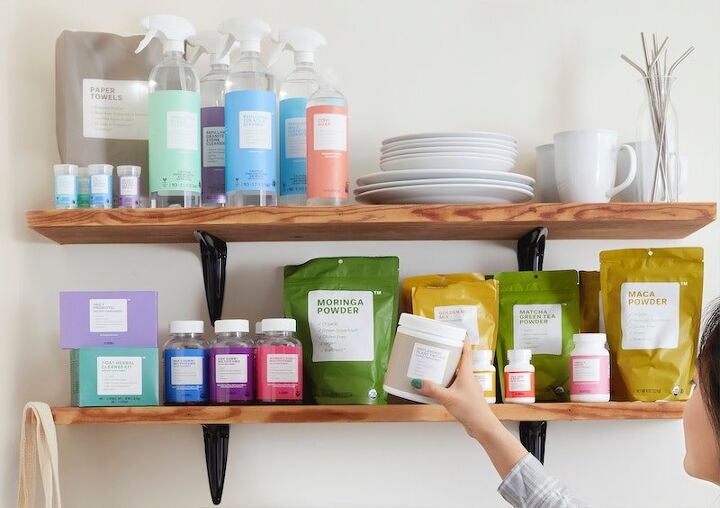



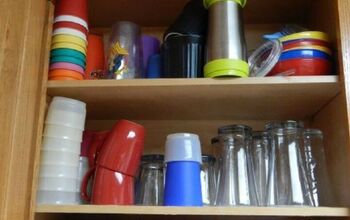
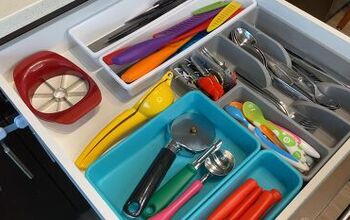


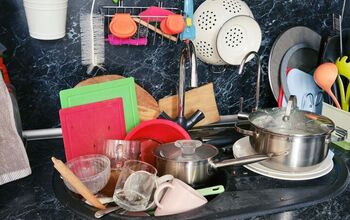

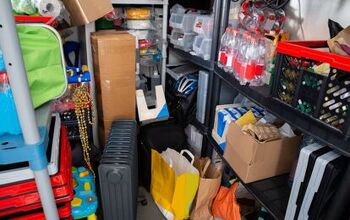

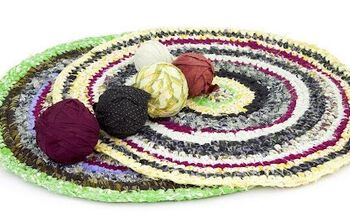


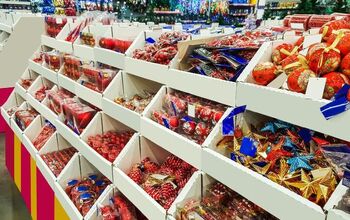
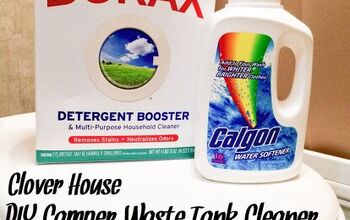
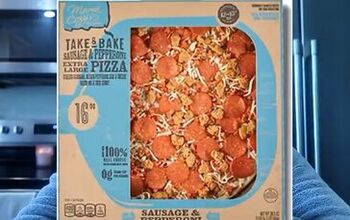


Comments
Join the conversation
I'll be checking my plastic containers for what number they are. Glass is a great container. Maybe I need to use mason jars for storage of dry beans and rice. I have them in the original bags inside of plastic storage shoebox. Thanks for information.